AR1100 Lecture 4
Vocabulary:
-
Form - 1. When referring to objects,
it is the shape and structure of a thing. 2. When referring to
artworks, it is the visual aspect of composition, structure, and the
work as a whole.
-
Biomorphic - Describes shapes derived from organic or natural forms
-
Curvilinear - Rounded and curving forms that tend to imply flowing shapes and compositions
-
Rectilinear - Composed entirely of straight lines
-
Positive Shape - Any shape or object distinguished from the background
-
Negative Space - Unoccupied areas or empty space surrounding the objects or figures in a composition
-
Figure - Any positive shape or form noticeably separated from the background, or the negative space
-
Ground
- The surface of a two-dimensional design that acts as the background
or surrounding space for the "figures" in the composition.
-Shape-
A shape is a visually perceived area created by either an enclosing line or value changes defining the outer edge.
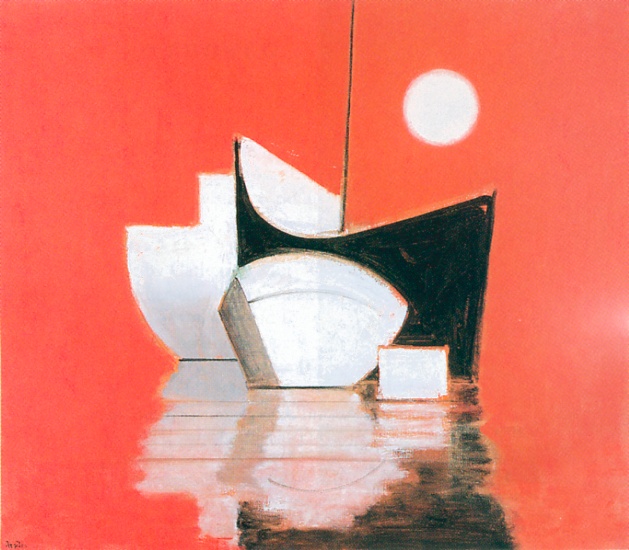
Paul Resika. July. 2001. Oil on canvas.
One form of Abstraction in image-making involves reducing the details of an image, simplifying it to its basic shapes.
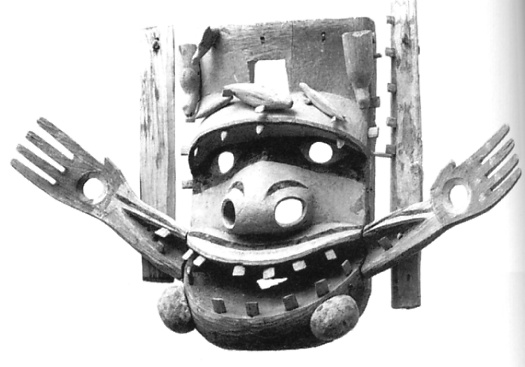
Unknown Inuit artist. Mask of Tunghak, Keeper of the Game. 19th Century. Painted wood.
Many of the shapes in this mask seem to suggest geometric forms.
All form, however complex, is essentially based on (and can be reduced to) a few geometric shapes.
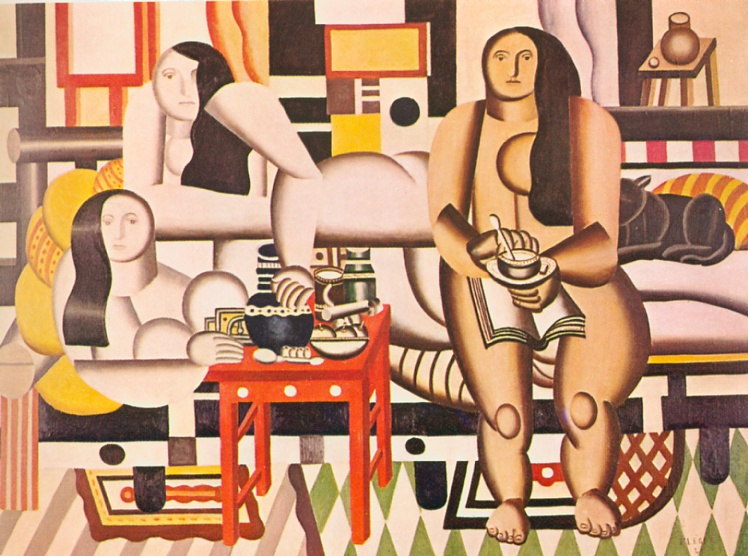
Fernand Léger. Three Women (Le Grand Dejeuner). 1921.
Biomorphic Shapes
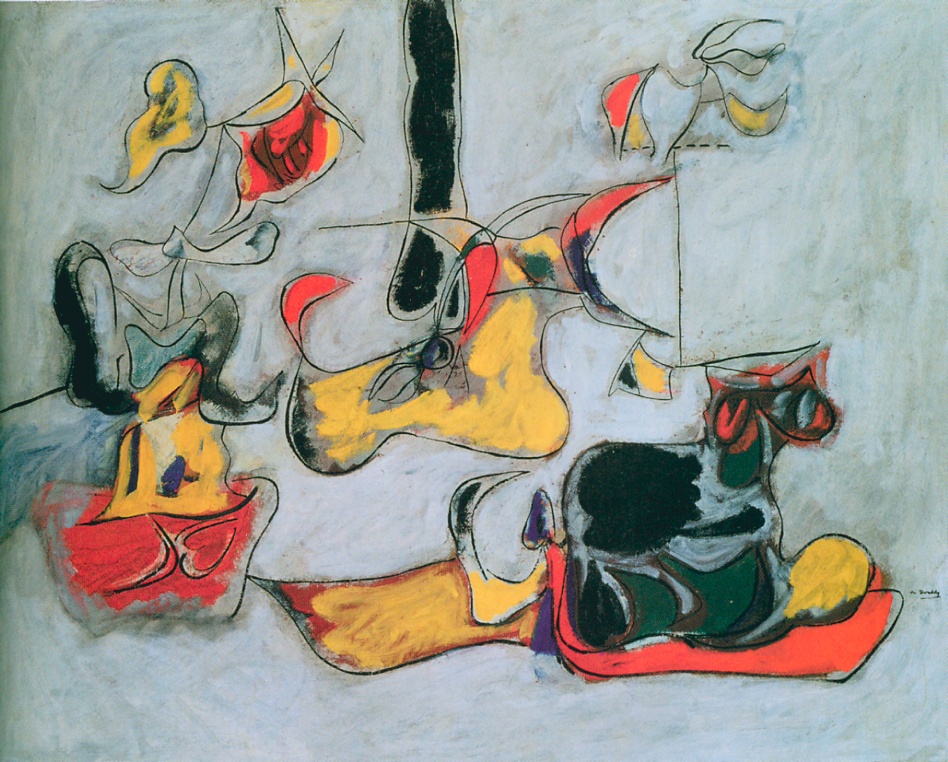
Arshile Gorky. Garden in Sochi. 1943. Oil on canvas.
Simple shapes suggest plants, or even human anatomy,
without explicity resembling anything nameable. They allude to natural
forms.
Rectilinear Shapes
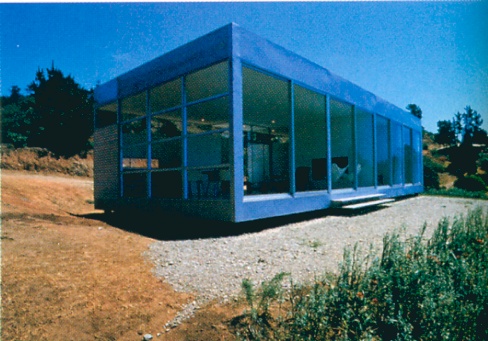
Rocio Romero. Prefabricated Home. 2003.
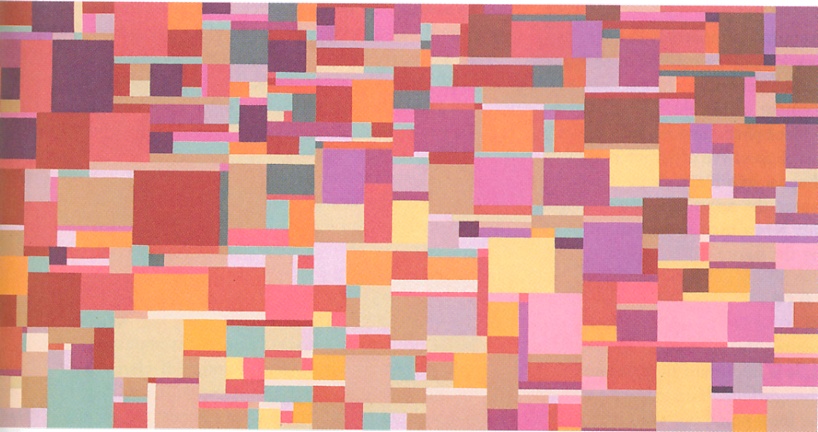
Yeardley Leonard. Sita. 2001. Acrylic on linen.
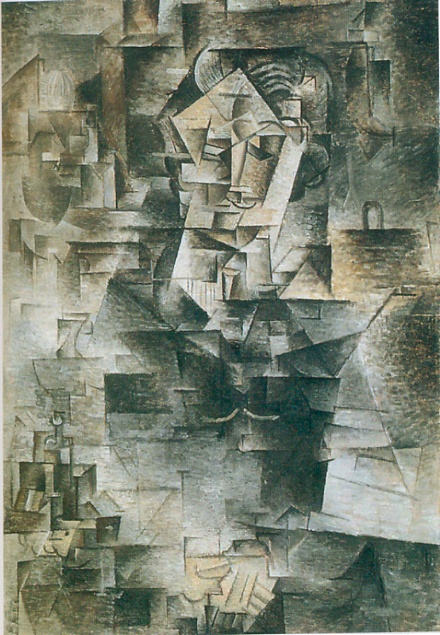
Pablo Picasso. Daniel-Henry Kahnweiler. 1910. Oil on canvas.
Curvilinear Shapes
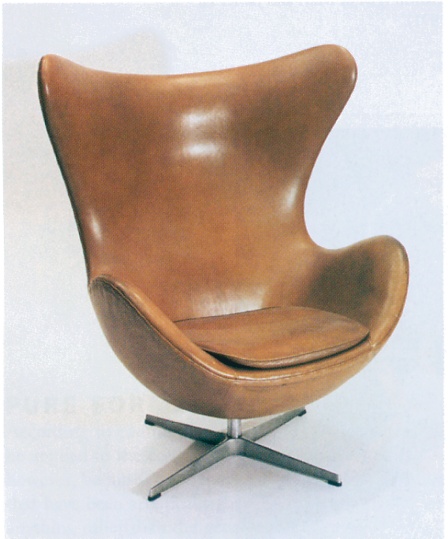
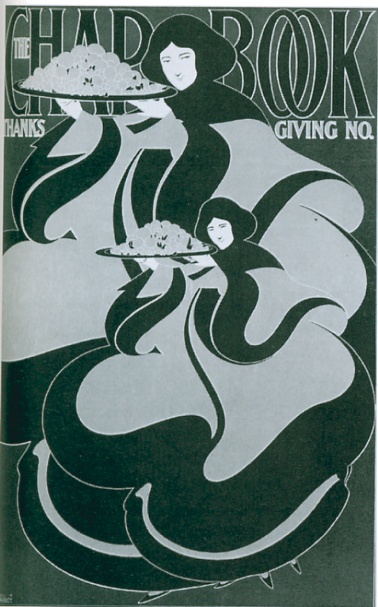
Will Bradley. Poster for The Chap-Book. 1895. Lithograph.
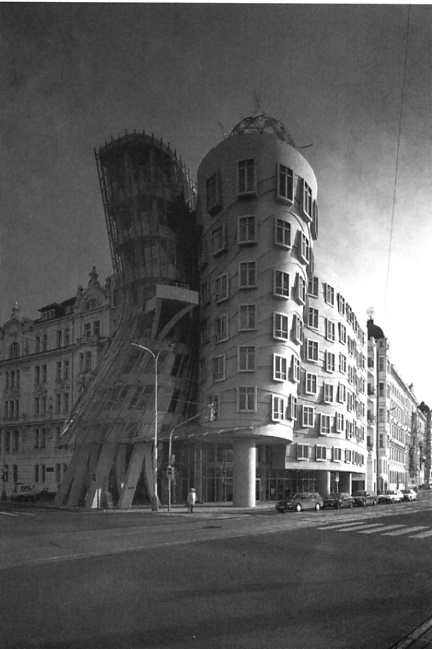
Vladimir Milunic & Frank Gehry. Nationale-Nederlanden Building (Prague). 1996.
Positive and Negative Shapes
 |
-
In
each of these patterns, the black shape is identical. But there is a
very different visual effect caused by the placement within the frame.
-
The black shape organizes the empty space into various shapes.
|
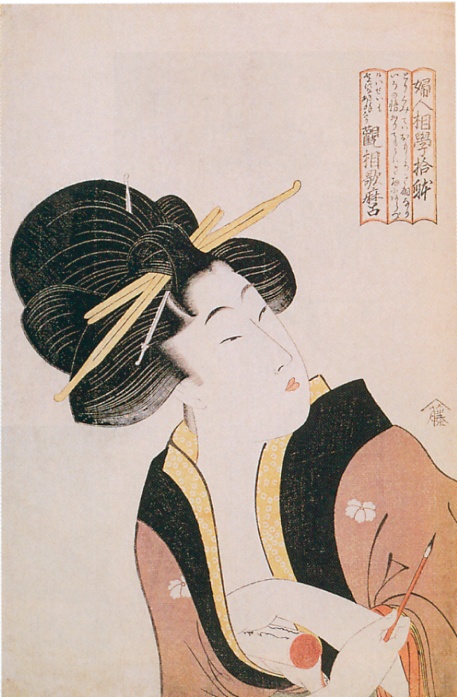
Utamaro. Ten Looks of Women's Physiognomy. Print.
Unusual compostion of the figure creates two interesting negative shapes.
Important to remember that both figure and ground are equally important in final visual effect.
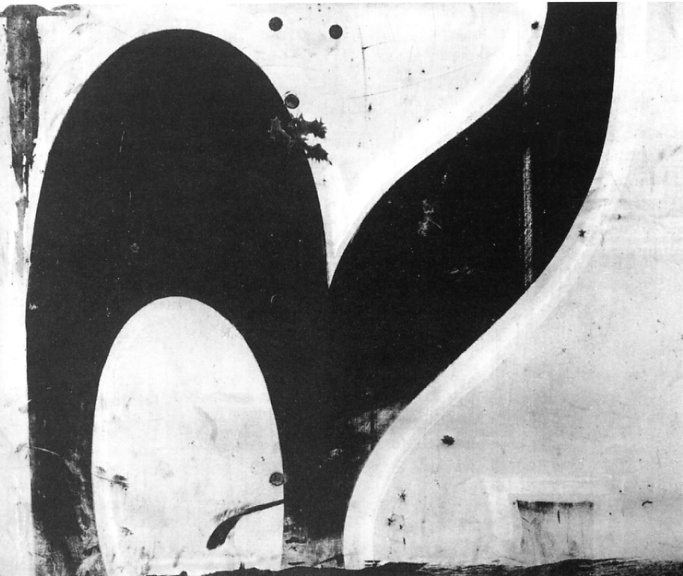
Aaron Siskind. Chicago 30. 1949. Photograph.
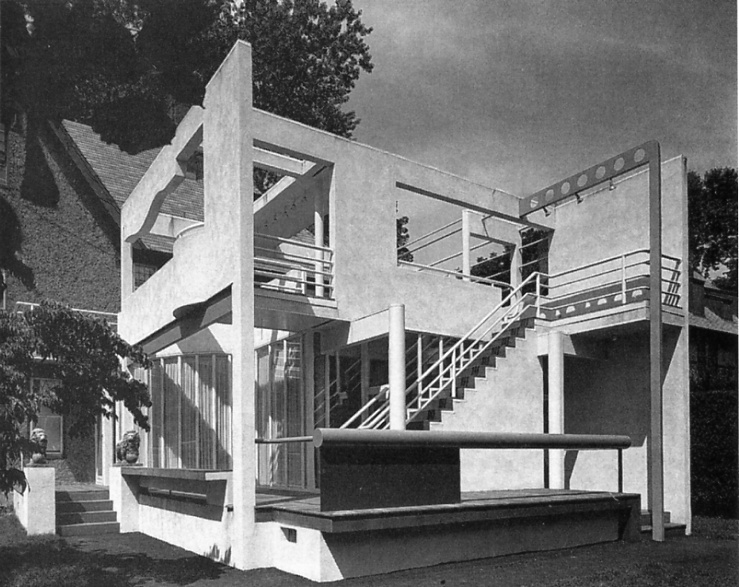
Michael Graves. Addition to the Benacerraf House. 1969.
Architecture is, in essence, the enclosure of negative spaces.
Positive/Negative Shape Ambiguity
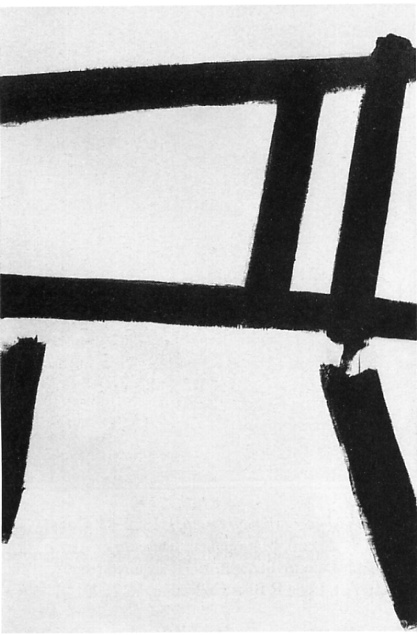
Franz Kline. White Forms. 1955. Oil on canvas.
Initially we perceive this image as black shapes on a background, until we read the title and our focus shifts.
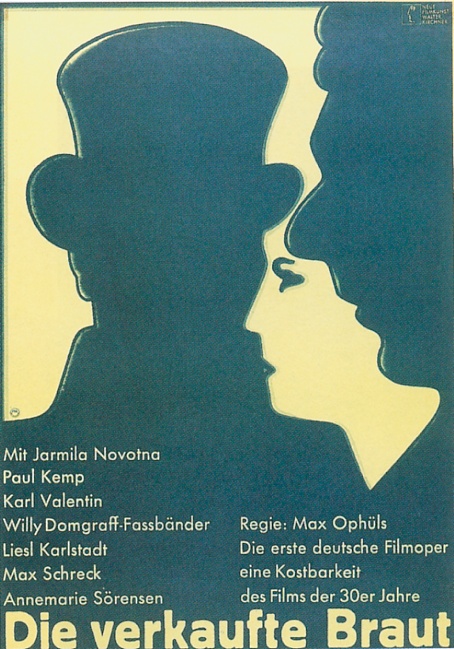
Hans Hillmann. Poster for The Bartered Bride. 1972.
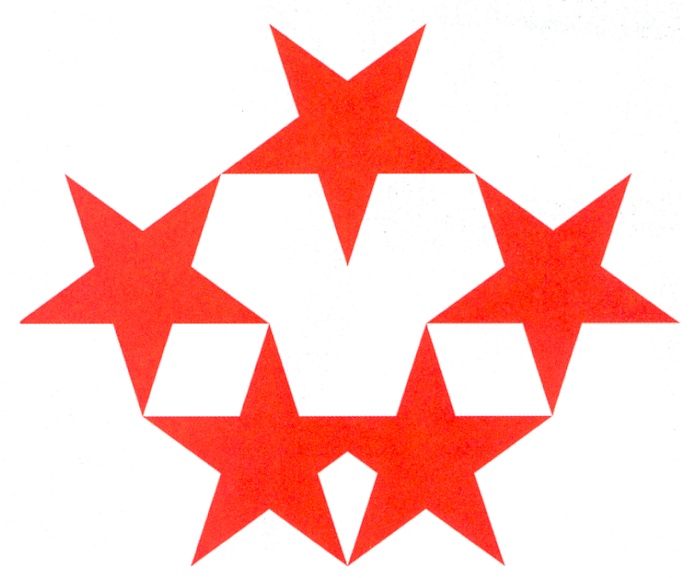
Chermayeff & Geismar, Inc. Multicanal Logo.
MC Escher's Use of Positive and Negative Shapes
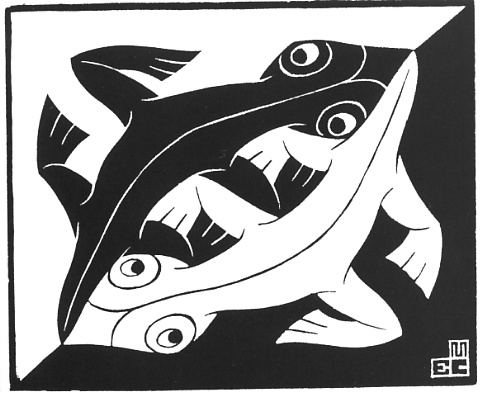
MC Escher. Bookplate. 1940. Wood Engraving.
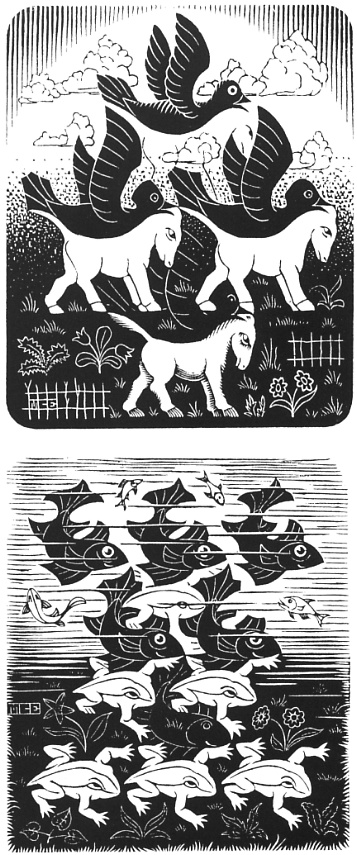
MC Escher. Horses and Birds/Fish and Frogs. 1949. Wood engraving.
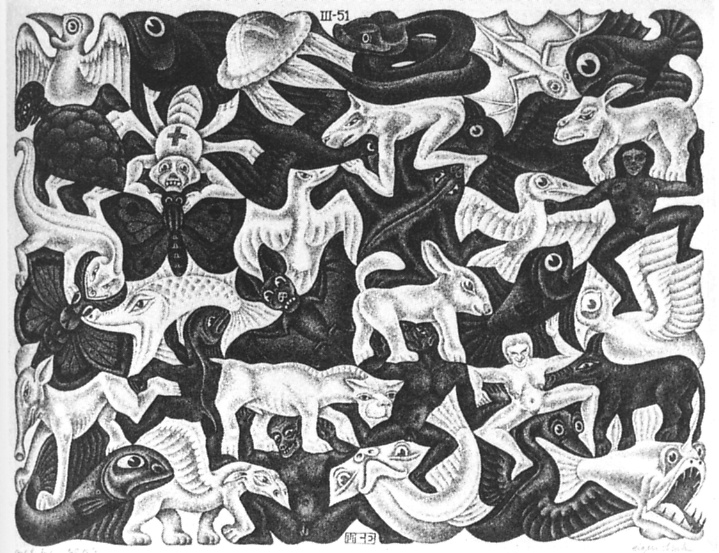
MC Escher. Plane Filling 1. 1951. Mezzotint.
Shape Simplification Assignment
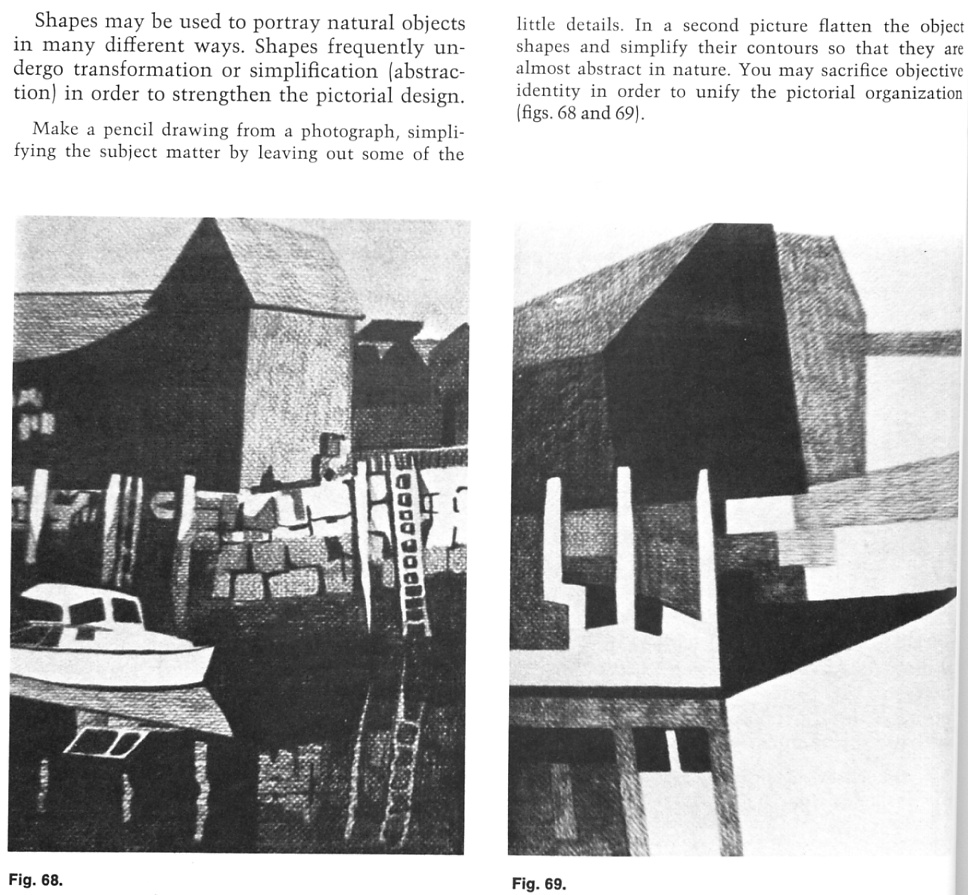
Partially adapted from Design Basics. Lauer and Pentak, 2005.





















